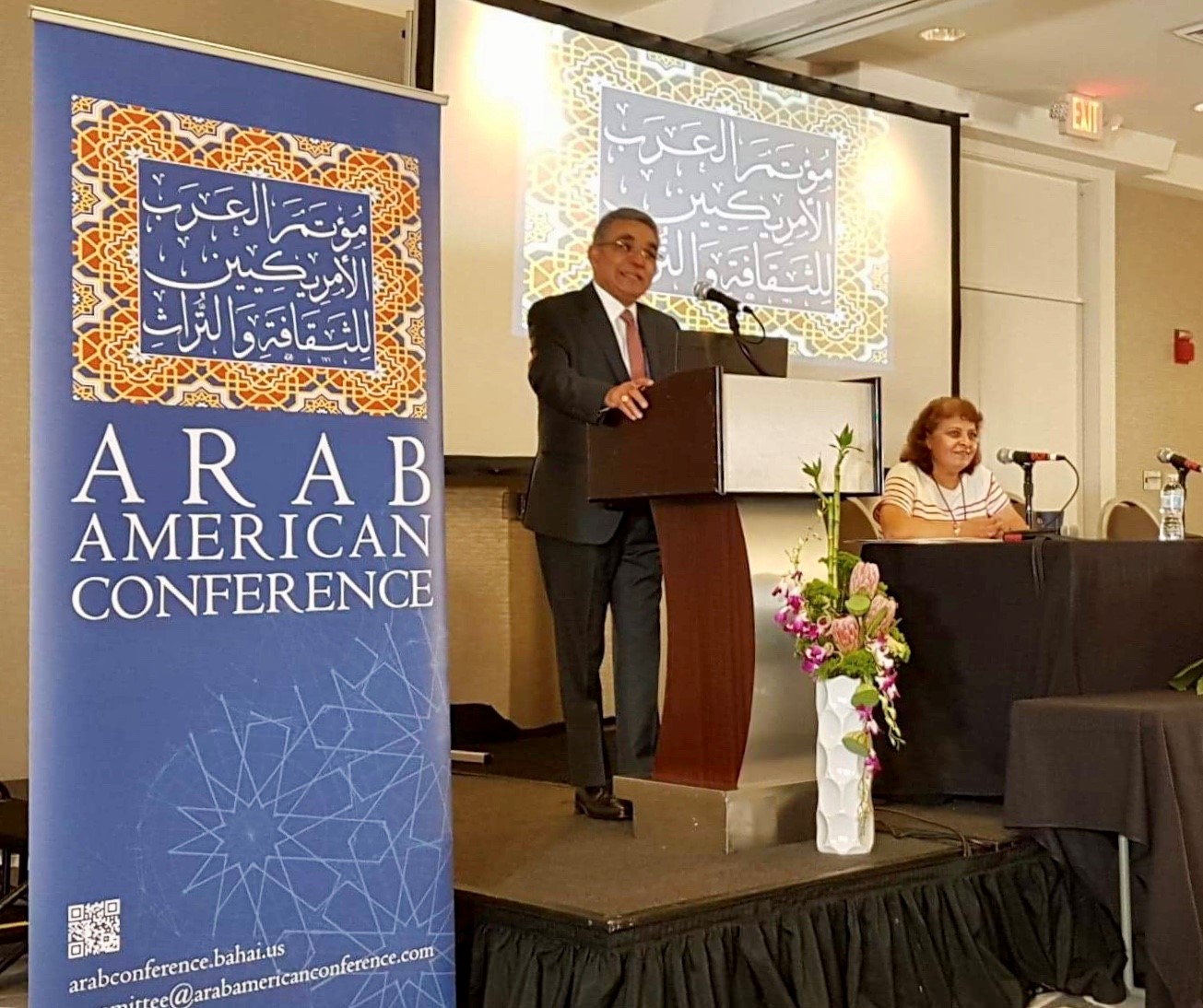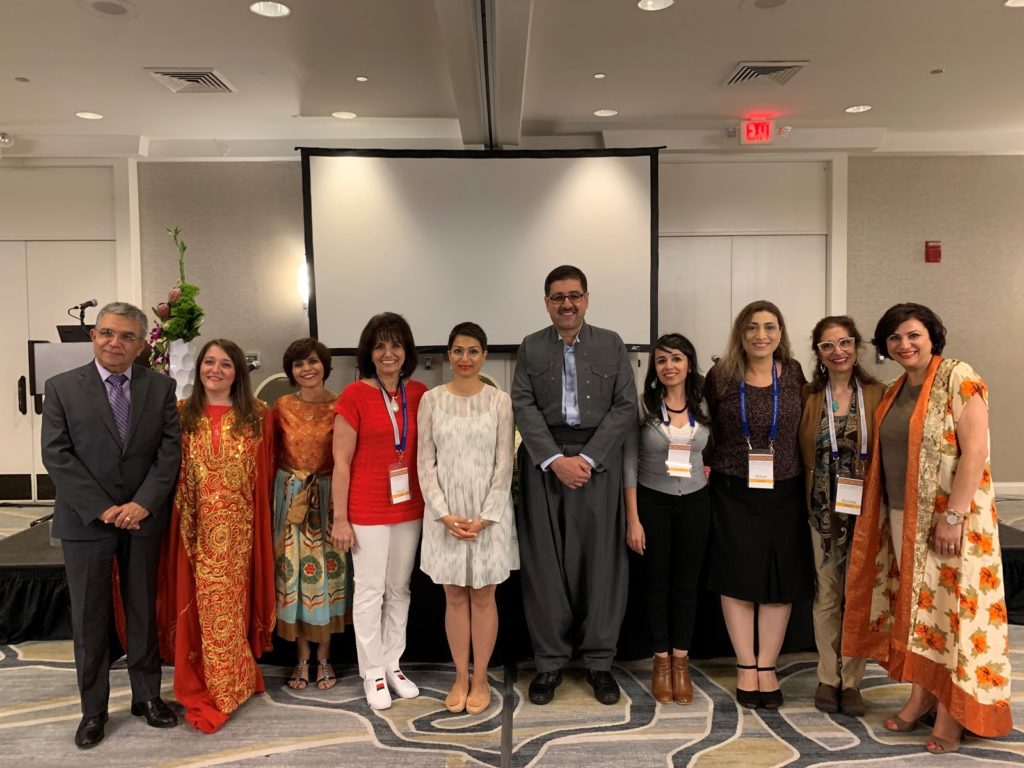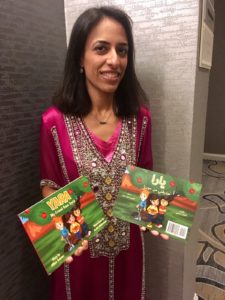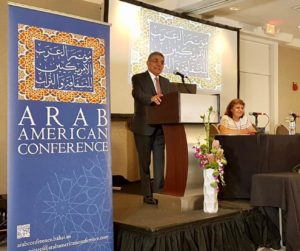



Now in its eighth year, the Arab American Conference brings together speakers of the Arabic language to strengthen bonds of friendship, contribute to cultural discourse, and celebrate the Arab world’s vibrant and distinctive contributions to society.


This year’s gathering, convened in Skokie, Illinois, on Aug. 22-25, focused on “Prospects for the Future of Humanity,” for four days of discussion panels, workshops and artistic presentations that included Arabic music and a movie night. The meeting drew 55 attendees from seven countries.
Conference sessions are held primarily in Arabic, with translation for those presenting in other languages. Most attendees, like Saad Al-Jassar, of nearby Evanston, are native Arabic speakers and welcome meeting others in their own language and hearing the cultural musical expressions.
“The workshops were very informative and stimulating,” said Al-Jassar. “We learned how the Arab friends are engaging segments of their societies in building and strengthening coexistence among diverse groups.”


The conference’s intimate setting allows for quality interactions, says Sarah Ahmadi Akahavan, of Vienna, Virginia, a member of the conference organizing committee appointed by the National Spiritual Assembly of the Baha’is of the United States.
Nabil Elias, another committee member, agrees, “The conference provides an opportunity to renew friendships formed from times past in the Middle East and to follow up on news about family and friends. It also offers the opportunity to make new friends.”
Elias, who is from Charlotte, North Carolina, says, “We become friends on social media or exchange email or text messages. Occasionally we visit each other when we travel or invite friends to visit. We get to know each other truly as one family.”
Elias says that the networking initiated at the conference provides supportive relationships, professionally and otherwise. “We encourage one another and support one another to engage in current non-partisan discourses in society related to Arab Americans in the diaspora and to help create unity in diversity in the Middle East region.
“These initiatives complement the work being done by Baha’is engaged in core activities, social discourse and social action as all are aimed to serve humanity in the process of developing peaceful, loving, prosperous, and sustainable local and global communities,” he says.
In its beginning, the conference was focused on Arabic literature. Over the years the focus has evolved to be more aligned with current issues and with Baha’i efforts to build community and engage in social discourses.
“The committee pays careful attention to the process of selecting the theme, presentation topics and presenters, such that they reflect current realities, challenges and successes of Arabs and the Arab diaspora in the Middle East and abroad,” says Akahavan. The committee also makes sure that the presenters come from diverse religions and countries to add to the richness of the views and discussions.


“The speakers—among them was the former member of the Universal House of Justice, Dr. Javaheri—were very inspiring,” says Al-Jassar. Firaydoun Javaheri, former member of the international governing council of the Baha’i Faith, spoke about world peace and the role of the individual. Another talk was by Rabab Kamal from Egypt, who presented on some grassroots initiatives that empower women and promote coexistence.
“One highlight of the conference for me was to learn of the advances made in Kurdistan region in Iraq in terms of coexistence and the development of a stronger spirit of unity,” says Elias. “Another highlight was to learn of the initiative we heard of in Egypt of constructive resilience—that of fighting harmful extremist ideas that discriminate and spread hatred, but not fighting the people who promote such ideas.”
According to Elias, “Everyone at the conference was committed to begin or continue working to make a difference by taking practical steps towards the goals of the conference.”
Akhavan adds, “The goal is that the participants leave the conference filled with hope and enthusiasm to contribute to the spiritual and material advancement of their communities and actively engage in social discourses and community building.”
The conference has extensive online archives of audio files from previous conferences since 2014.


![]()
![]()
Whether you are exploring the Bahá'í Faith or looking to become an active member, there are various ways you can connect with our community.
Please ensure that all the Required Fields* are completed before submitting.